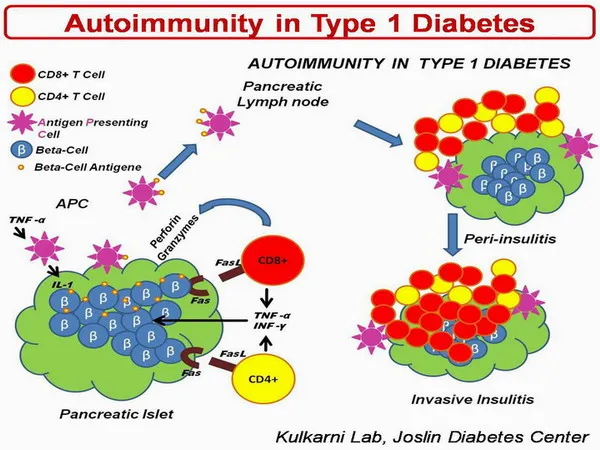News Expansion
A team of researchers, led by experts from the Colorado University School of Medicine, in the United States, has identified a new class of antigens that can be a factor that contributes to type 1 diabetes, according to an article on its published workIn the latest edition of Science magazine.
In autoimmune disease, such as type 1 diabetes, the key question is why the immune system attacks the body's own tissues.In this pathology, beta cells of insulin producing in the pancreas are destroyed by immune cells, especially those known as T cells. Insulin is the hormone that regulates blood glucose levels and without it, the disease develops withdanger to life.Currently, there is no cure for type 1 diabetes.
"Our laboratory studied the type of T cells known as CD4 T cells," says Kathryn Haskins, immunology and microbiology professor and author of the article.State especially interested in identifying antigens that activate these T cells. "
T antigens T are pieces or protein fragments (peptides) that have to be collected and presented to T cells by antigen presenting cells.Normally, a CD4 T cell is supposed to respond to "strange" antigens, as a viral peptide, but in autoimmune disease T cells respond to antigens that are generated in the body.These proteins and peptides are called autoantigens.
When an self -reactive T cell sees its antigen, it is activated and can start the disease.By identifying these antigens, scientists can be able to use that information to detect early self -reactive T cells in the disease, or better yet, in people at risk.If they are able to use antigens to deactivate destructive T cells, it may be possible to prevent disease.
a fusion of insulin and peptides, the culprit
Haskins and other experts, including co -author Thomas Delong, an assistant professor of immunology and microbiology, carried out experiments to analyze the parts of the beta cell.
They discovered a new class of antigens that are made up of insulin fragments fused peppers from other proteins present in beta cells and that this union leads to the generation of hybrid insulin peptides that are not encoded in the genome of an individual.
If peptides in the body are modified in their original form, they essentially become "foreigners" for the immune system and this can explain why they become white for self -reactive T cells.
The discovery of hybrid peptides as objectives of the immune system provides a plausible explanation of how the immune system is deceived to destroy the body's own beta cells, a finding that can also lead to better other autoimmune pathologies.
Diabetes Tipo 1 desde 1.998 | FreeStyle Libre 3 | Ypsomed mylife YpsoPump + CamAPS FX | Sin complicaciones. Miembro del equipo de moderación del foro.
Autor de Vivir con Diabetes: El poder de la comunidad online, parte de los ingresos se destinan a financiar el foro de diabetes y mantener la comunidad online activa.
Sígueme en Instagram



